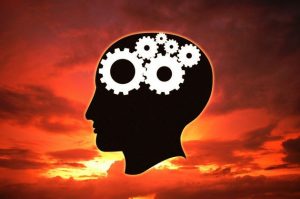Psychology Notes On – Types Of Delusions – For W.B.C.S. Examination.
Those unshakeable beliefs are different from person to person and affect different parts of their lives.
Delusions can be a symptom of a psychotic disorder like schizophrenia, or they can be the only mental health issue a person has. When that’s the case, it’s called delusional disorder.
With delusional disorder, the person has an untrue idea, experience, or memory and believes that the delusion is especially important or meaningful.
Primary Types of Delusions
Some researchers put delusions into five categories:
Mood or atmosphere: This involves an uncanny, strange feeling that the world around you is threatening or odd. People who have this type of delusion feel tense and confused because they can’t figure out what about their environment has changed, but they’re convinced something is wrong.
Perception: This type of delusion is about the person who’s affected rather than about the outside world. What the person believes is real, but they put an unreal amount of importance on it. This intense focus goes beyond what makes sense rationally or emotionally and can feel urgent and personal.
Memory: In this case, the person’s delusion is an inaccurate recollection of something that happened in the past.
Ideas: This sort of delusion involves complicated, fully formed thoughts that come out of nowhere.
Awareness: With this type, people are very aware of a particular experience. They don’t hear, see, or feel it happening in the world around them — it’s merely an intensely vivid idea.
Common Themes of Delusions
Each person’s personality, family background, and culture affect the delusion they have. There are a lot of different themes, but some show up more often than others:
- Persecution: This is based on the idea that a person or object is trying to hurt you or work against you.
- Infidelity: This involves unusual jealousy or possessiveness toward another person.
- Love: This is an obsessive love that takes over all other thoughts or an idea that someone famous or unknown is in love with you.
- Religion: Delusions of this kind aren’t necessarily caused by zealous belief but more by the environment in which the person lives.
- Guilt or unworthiness: This theme is common in people with depression.
- Grandiose: This is when a person feels that they themselves, certain objects, or specific situations are crucially important, powerful, or valuable.
- Negation or nihilistic: This theme involves intense feelings of emptiness.
- Somatic: This is the false belief that the person has a physical issue or medical problem.
- Mixed: This is when a person is affected by delusions with two or more themes.
Please subscribe here to get all future updates on this post/page/category/website


 Toll Free 1800 572 9282
Toll Free 1800 572 9282  mailus@wbcsmadeeasy.in
mailus@wbcsmadeeasy.in



















































































































